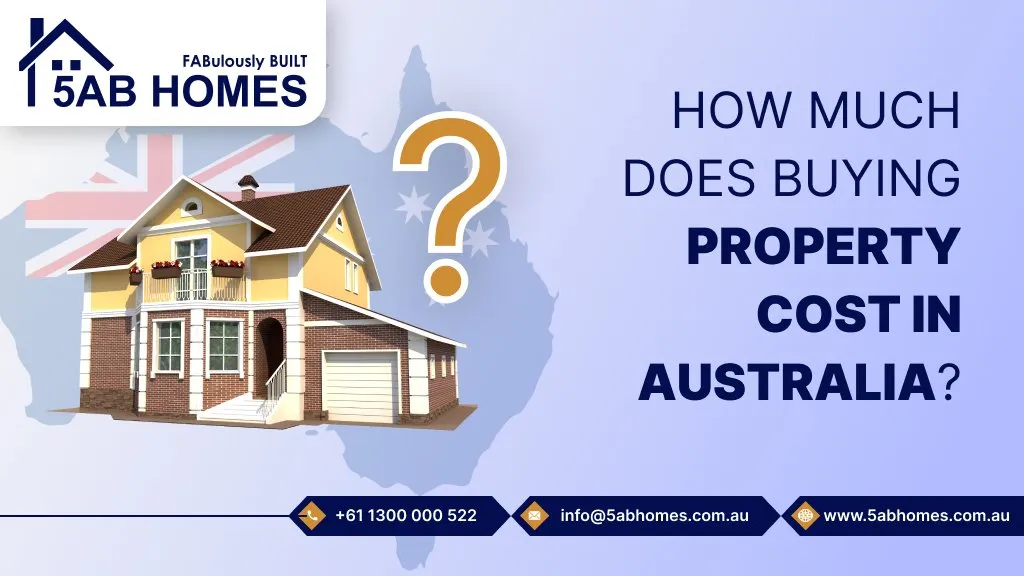We all know that purchasing a home requires a significant initial financial investment, but few of us realise how long the process might be. While the federal and state governments may be dishing out incentives left, right, and center, it doesn’t mean you shouldn’t conduct a thorough cost analysis before purchasing a property. For some people, the expenditures of purchasing a home can amount to as much as 11% of the purchase price. If you put down $44,000 on a $400,000 property, your whole deposit will be spent on expenditures.
If you’re a first-time home buyer, government incentives can help you save money, but keep in mind that the extra fees can add up quickly.
Appliances, furniture, and renovations may all eat into your finances, so it’s a good idea to have a strong budget in place before jumping into the real estate market.
Costs of buying a home in Australia
Upfront costs of buying a house
Lenders Mortgage Insurance
Lenders charge Lenders Mortgage Insurance (LMI) if the homebuyer is borrowing more than 80% of the property’s worth. LMI is a fee that the borrower pays to protect the lender in the event that the borrower fails on the loan. The cost of LMI varies depending on the insurance company and the amount of money you put down.
Legal and conveyancing fees
When purchasing a home, you must hire a solicitor or conveyancer. Despite the fact that there are DIY conveyancing kits available on the internet, nothing beats the genuine thing. A qualified conveyancer can only prepare legal documents and provide legal advice on property transactions, whereas a solicitor can provide a broader variety of legal advice.
Building and pest inspections
It is strongly recommended that you have a building and pest inspection (for houses and separate dwellings) or a strata report inspection (for units and strata dwellings). A strata report inspection for a unit block will tell you what work has been done on the building and what work is scheduled in the future (including all costs paid and due to be paid).
Stamp duty
Stamp tax (also known as transfer duty) can be a significant outlay and is one of the most frequently complained-about expenses when buying a home. The cost of stamp duty, as well as the various state and territory stamp duty discounts for first-time property buyers, vary from state to state.
Home loan fees
There are many home loan costs that may be levied upfront if you have a home loan. Lenders aim to make their fees and charges as transparent as possible for borrowers, but each lender’s fees may be referred to by a different name, and certain fees may still catch you off guard.
Ongoing costs of buying a house
Council rates
When you buy a house, you must pay the remaining yearly or quarterly charges, such as water and land, to the seller. These will begin on the date of settlement and will be specific to the property and the surrounding area.
Strata and body corporate
You’ll have to pay body corporate or strata fees if you buy an apartment, condo, or townhouse. These costs support the upkeep of common areas in and around the property, building insurance (which only protects the structure, not the contents of your unit), and body corporate/strata management administration.
Regular maintenance and repairs
You’ll also need to budget for regular property upkeep and repairs as a homeowner. Hopefully, these charges will not occur frequently, but you should budget for them because they can quickly add up. Getting your air conditioners repaired, renovating the house, landscaping, and cleaning out the gutters are all examples of maintenance.


